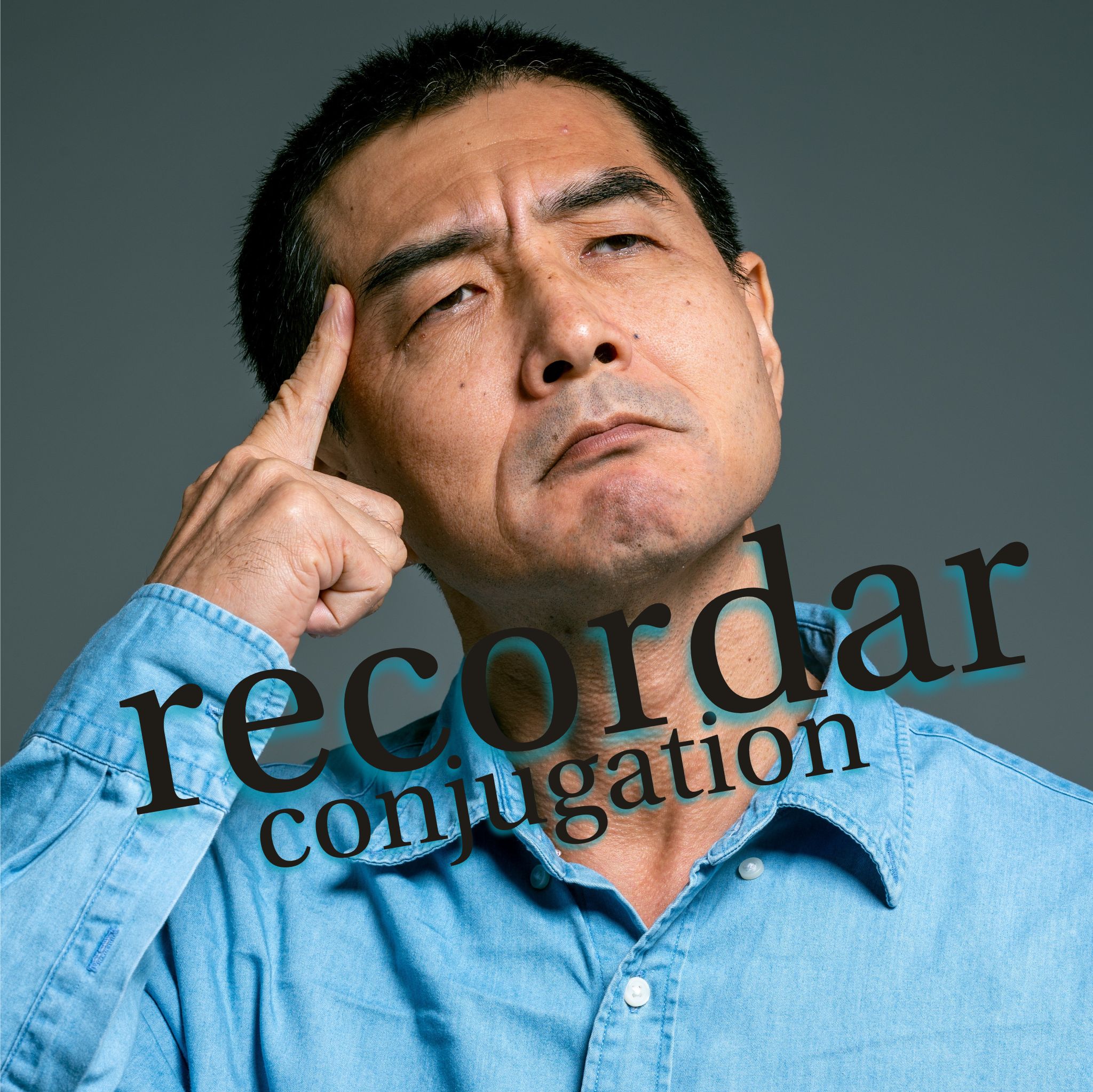Recordar conjugation: Learn to conjugate this essential verb

Get our free email course, Shortcut to Conversational.
Have conversations faster, understand people when they speak fast, and other tested tips to learn faster.
More infoRecordar is one of those verbs in Spanish that you will need to use on a daily basis. That’s why knowing the recordar conjugation becomes a top priority while learning Spanish.
Because of its meaning, recordar is among the most-used verbs in Spanish. Indeed, recordar appears in our list of the most important Spanish -ar verbs.
In today’s post, we’ll briefly go over the meaning of recordar, then we’ll move on to recordar conjugation. As always, we’ll include plenty of examples. By the end of the post, we hope you’ll remember all the conjugations! – ¡Esperamos que recuerdes todas las conjugaciones!
Recordar: Meaning
Whenever you want to talk about something about the past or want someone to remember to do something, recordar is the verb you’ll use. Recordar can be translated as to remember, to recall, or to remind. See each recordar meaning with these examples:
- Remember to hang your clothes before leaving. – Recuerda colgar la ropa antes de irte.
- I recall when we used to go to school and we always arrived late. – Recuerdo cuando íbamos a la escuela y llegábamos siempre tarde.
- Remind me to call Pedro on his birthday. – Recuérdame llamar a Pedro para su cumpleaños.
Another verb that means to remember or to recall is the reflexive acordarse. It’s used a bit differently, however. We cover the differences between these two verbs in our dedicated post on how to use recordar vs acordarse.
Recordar: Conjugation
Recordar is an irregular verb. It’s considered as such because recordar in some tenses changes its stem from record- to recuerd-. Aside from being irregular in its stem, recordar conjugation endings remain the same as any regular verb ending in -ar.
Let’s see the recordar conjugation in action.
Recordar conjugation: Simple tenses
| Subject | Present | Imperfect | Preterite |
| Yo | recuerdo | recordaba | recordé |
| Tú | recuerdas | recordabas | recordaste |
| Él, Ella, Usted | recuerda | recordaba | recordó |
| Nosotros, Nosotras | recordamos | recordábamos | recordamos |
| Ellos, Ellas, Ustedes | recuerdan | recordaban | recordaron |
- I remember all the Spanish conjugations. – Yo recuerdo todas las conjugaciones del Español.
- Matías didn’t remember my phone number. – Matías no recordó mi número telefónico.
- We always used to remember all the good moments we’d been through together. – Siempre recordábamos los buenos momentos que pasamos juntos.
| Subject | Future | Conditional | Imperative |
| Yo | recordaré | recordaría | |
| Tú | recordarás | recordarías | recuerda |
| Él, Ella, Usted | recordará | recordaría | recuerde |
| Nosotros, Nosotras | recordaremos | recordaría | |
| Ellos, Ellas, Ustedes | recordarán | recordaríamos | recordemos |
- Ellos dijeron que recordarán traer el libro mañana. – They said they will remember to bring the book tomorrow.
- Leo would remember your name, if you had given your telephone number to him. – Leo recordaría tu nombre, si le hubieras dado tu número de teléfono.
- Remember that not all that glitters is gold. – Recuerda que no todo lo que brilla es oro.
| Subject | Present subjunctive | Imperfect subjunctive |
| Yo | recuerde | recordara/ recordase |
| Tú | recuerdes | recordaras/ recordases |
| Él, Ella, Usted | recuerde | recordara/ recordase |
| Nosotros, Nosotras | recuerde | recordara/ recordase |
| Ellos, Ellas, Ustedes | recordemos | recordáramos/ recordásemos |
| Yo | recuerden | recordaran/ recordasen |
- I don’t think your grandfather remembers that recipe. – No creo que tu abuelo recuerde esa receta.
- It would be good if everyone remembered what happened. – Sería bueno que todos recordaran lo ocurrido.
Recordar conjugation: Compound tenses
The participle of recordar is recordado and the gerund for the continuous tenses is recordando.
| Subject | Present perfect | Pluperfect | Future perfect |
| Yo | he recordado | había recordado | habré recordado |
| Tú | has recordado | habías recordado | habrás recordado |
| Él, Ella, Usted | ha recordado | había recordado | habrá recordado |
| Nosotros, Nosotras | hemos recordado | habíamos recordado | habremos recordado |
| Ellos, Ellas, Ustedes | han recordado | habían recordado | habrán recordado |
- We’ve remembered you all day long. – Los hemos recordado todo el día.
- Pilar had remembered all the details. – Pilar había recordado todos los detalles.
- By the time we return, they’ll have already remembered the whole lesson. – Para cuando nosotros volvamos, ellos ya habrán recordado toda la lección.
| Subject | Conditional perfect | Present perfect subjunctive | Pluperfect subjunctive |
| Yo | habría recordado | haya recordado | hubiera/ hubiese recordado |
| Tú | habrías recordado | hayas recordado | hubieras/ hubieses recordado |
| Él, Ella, Usted | habría recordado | haya recordado | hubiera/ hubiese recordado |
| Nosotros, Nosotras | habríamos recordado | hayamos recordado | hubiéramos/ hubiésemos recordado |
| Ellos, Ellas, Ustedes | habrían recordado | hayan recordado | hubieran/ hubiesen recordado |
- If we had written it, we would have remembered it. – Si lo hubiéramos escrito, lo habríamos recordado.
- It’s really strange that they didn’t remind me to buy the tickets before. – Es muy extraño que no me hayan recordado que comprara las entradas antes.
- If I had remembered it, I’d have phoned you for your birthday. – Si lo hubiera recordado, te habría llamado para tu cumpleaños.
Conclusion
In today’s post on recordar conjugation, we’ve covered all that you need to know on how to use and conjugate this verb. We’ve shown you all the possible conjugations this irregular verb may have, in its simple and compound tenses.
Now you’re all set to continue, and ¡recuerda practicar! – remember to practice! In order to do so, go ahead and put all this knowledge to the test with the following exercises.
Exercises
Conjugate the verb recordar to fill in the gaps.
1. Ahora (yo) _____ que él me dijo que iba a salir.
2. Siempre que (nosotros) _____ nuestro viaje a España, nos poníamos muy felices.
3. Felicitas nunca _____ mi contraseña.
4. Es importante que los estudiantes _____ esto el día del examen.
5. Si hubiéramos _____ comprar las entradas, habríamos podido ir al concierto.
6. No es posible que no hayamos _____ el cumpleaños de la abuela Tere.
7. Si sigo estudiando así, para mañana habré _____ la lista completa de verbos.
8. Cuando seas adulto, (tú) _____ todo lo que te he enseñado hoy.
9. (Tú) _____ llamarme cuando llegues a tu casa.
10. Si (ella) hubiera _____ todo en el examen, lo habría aprobado.
Answers
1. Ahora recuerdo que él me dijo que iba a salir. – Now I remember that he told me he was going to go out.
2. Siempre que recordábamos nuestro viaje a España, nos poníamos muy felices. – Whenever we remembered our trip to Spain, we got very happy.
3. Felicitas nunca recuerda mi contraseña. – Felicitas never remembers my password.
4. Es importante que los estudiantes recuerden esto el día del examen. – It’s important that the students remember this the day of the exam.
5. Si hubiéramos recordado comprar las entradas, habríamos podido ir al concierto. – If we had remembered to buy the tickets, we would have been able to go to the concert.
6. No es posible que no hayamos recordado el cumpleaños de la abuela Tere. – It’s impossible that we didn’t remember grandma Tere’s birthday.
7. Si sigo estudiando así, para mañana habré recordado la lista completa de verbos. – If I keep on studying like this, by tomorrow I’ll have remembered the whole verbs list.
8. Cuando seas adulto, recordarás todo lo que te he enseñado hoy. – When you grow up, you’ll remember all that I’ve taught you today.
9. Recuerda llamarme cuando llegues a tu casa. – Remember to call me when you arrive home.
10. Si hubiera recordado todo en el examen, lo habría aprobado. – If she had remembered everything in the exam, she would have passed it.



